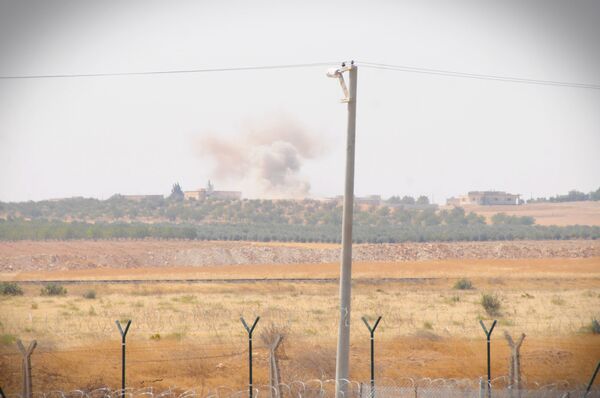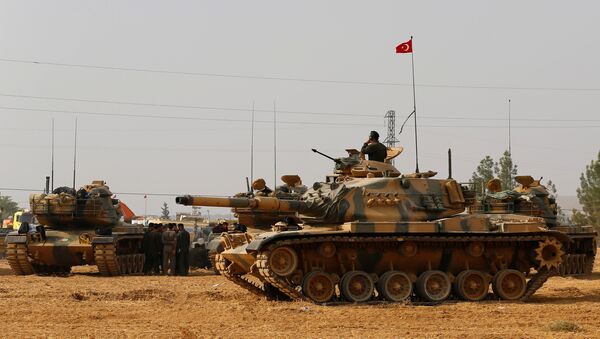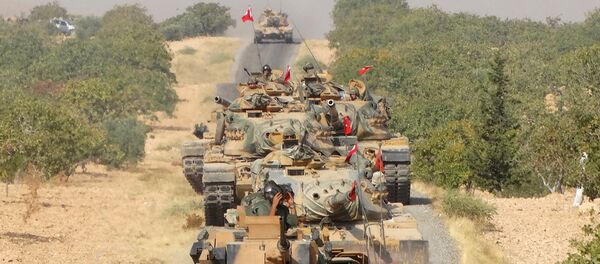Turkish authorities have long said that Euphrates River was a red line that the Kurds could not cross. Should Kurdish militias choose to cross the river and advance further west, Ankara would send troops across the border, they warned. This is exactly what happened.
In early August, the Syrian Democratic Forces (SDF), made up largely of the Kurds, liberated Manbij, a city located to the west of the Euphrates. They also said that they planned to move further west to liberate the town of al-Bab. On August 24, Turkey launched its military offensive.
In an opinion piece for the National Interest, Bülent Aras, professor of international relations at Istanbul-based Sabanci University, maintained that Ankara was waiting for "an opportune moment to wage a multifunctional operation" to tackle the twin threats, including Kurdish battlefield success in northern Syria and increasing terrorist attacks from Daesh.
In addition, Turkey also wanted to "ensure its border security and empower its position in the Syrian crisis," he added.

Turkey's goals with regard to the Syrian crisis have dramatically changed over the course of the last five years.
Ankara "currently prioritizes restoring highly fragile domestic security and aspire to an active role at the negotiation table for any post-conflict resettlement in Syria, rather than its initial aspirations to remove Assad and prevail in its geostrategic rivalry with Iran and Russia," Aras observed.
Fuad Shahbazov, a policy analyst at Wikistrat Inc, echoed these sentiments.
"Even though Ankara has not clarified its motives for entering Syria, it is no secret that the main source of concern for Turkey is the rising influence of the US-backed Kurdish Democratic Union Party (PYD)," he wrote for the Jerusalem Post. "Beyond that, Turkey seeks to strengthen its own influence in this part of Syria."
However, the Turkish military does not seem to be focusing on Daesh which is still present in the regions surrounding Jarablus.
"To clarify the situation on the ground a bit: While Turkey is pressing on SDF targets, [Daesh] continues to control scores of villages from Jarablus to al-Rai in the west," Turkish journalist Fehim Taştekin wrote for al-Monitor, adding that the brutal group "also controls the area from Turkey's borders to al-Bab in the south."
Taştekin singled out three tacit reasons behind Operation Euphrates Shield. These include establishing a de facto buffer zone in the Jarablus-Azaz-Marea triangle and opening a corridor for anti-Assad armed groups besieged in Aleppo, Syria's second largest city.
In addition, Ankara wants "to mobilize Turkey's Housing Development Agency to build satellite towns in the buffer zone to house Syrian refugees," he noted.




